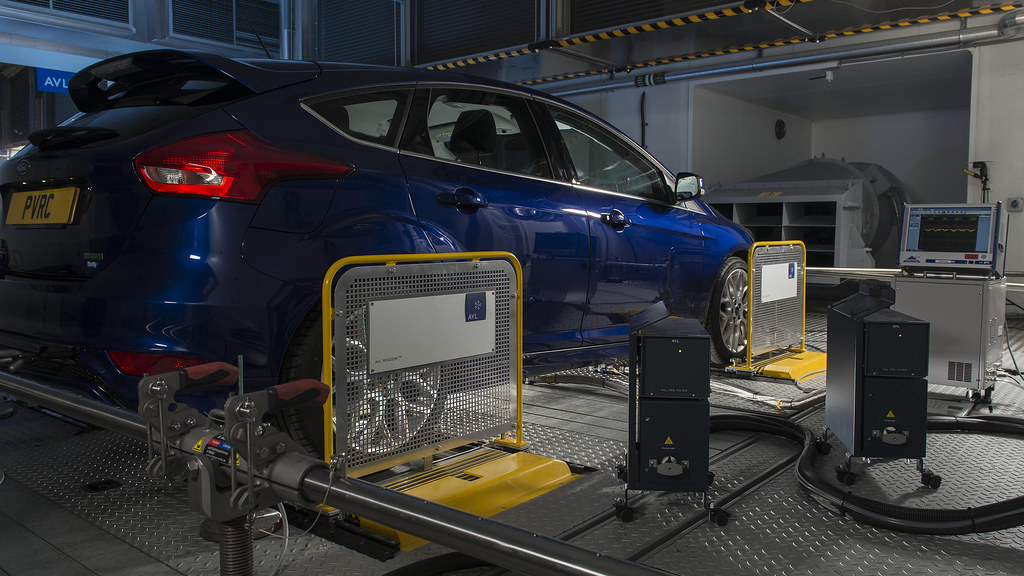Researchers from the Powertrain and Vehicle Research Centre (PVRC) in the Department of Mechanical Engineering have been awarded £3.2 million of funding.
An EPSRC (Engineering & Physical Sciences Research Funding) grant of £2 million will see the current vehicle facility upgraded and branded as the Centre for Low Emission Vehicle Research (CLEVeR). An additional investment from the University of £600,000 will see the Centre establish a platform where fundamental academic research can be undertaken alongside applied investigations in a world class vehicle research facility. It will address many of the future research challenges associated with current and future low and ultra-low carbon vehicles under real world driving conditions. This will be done by:
- Offering an inclusive and accessible research capability currently prohibitive or non-existent to many academic and even industrial research teams and especially SMEs
- Facilitating lab-vehicle-lab (LVL) research which will provide the capability to validate and inform a raft of fundamental modeling and simulation work aimed at whole and subsystem vehicle performance, as well as addressing the complex issue of ‘scalability’
- Acting as the centre of gravity, to bring together and forge new national and international research collaborations which are able to address a number of critical research questions surrounding future low carbon passenger vehicles
Professor Gary Hawley, the lead investigator, said: "The current vehicle facility has served our research needs well for the past decade and we have undertaken ground breaking work for a host of companies including Ford and Jaguar Landrover. The upgraded facility will see research capability open up in the area of future fuels, electric and hybrid electric vehicles and their sub-systems and will be the only one of its type in the UK."
Additional investigators are Dr Chris Brace, Dr Sam Akehurst and Dr Chris Bannister.
Success with the TSB Low Carbon Vehicles Integrated Delivery Program has also seen the PVRC secure £257,000 within a collaborative project led by HiETA Technologies of Bristol. The project, entitled ‘Selective Laser Melting for Engines (SLaME)’, will investigate a powder bed fusion version of additive manufacturing, to design and build parts/sub-systems for ultra-lightweight, efficient vehicle engines. This continues a running theme of research in PVRC focusing on fuel efficient vehicles. The project is led by Dr Colin Copeland and Dr Sam Akehurst.
In addition, Dr Chris Brace and Dr Sam Akehurst have also secured £874,000 of funding in a collaborative project with Ashwoods Automotive TATA Motors European Technical Centre (TMETC). This develops a new research relationship with TMETC, but builds on two previous TSB projects and a Knowledge Transfer Account that the PVRC have undertaken with Ashwoods. The project, Low Cost Auxiliary Power Unit (LowCAP), will investigate integrating the Tata two cylinder engine with Ashwoods Automotive unique motor generator and inverter technology to develop an extremely low cost auxiliary power unit for range extender electric vehicles (REEVs). It is anticipated that this low cost solution will result in increased market penetration of electric vehicles by removing range anxiety that currently exists, leading to a faster up take of this low carbon transport solution.
Jane Millar, Pro-Vice-Chancellor for Research, said: "Congratulations to Professor Hawley and colleagues in the Powertrain and Vehicle Research Centre. These awards are clear recognition of the quality of their research. This sort of co-funding, the University working with external partners to invest in research infrastructure, is essential for future success. I look forward to seeing CLEVeR develop."

